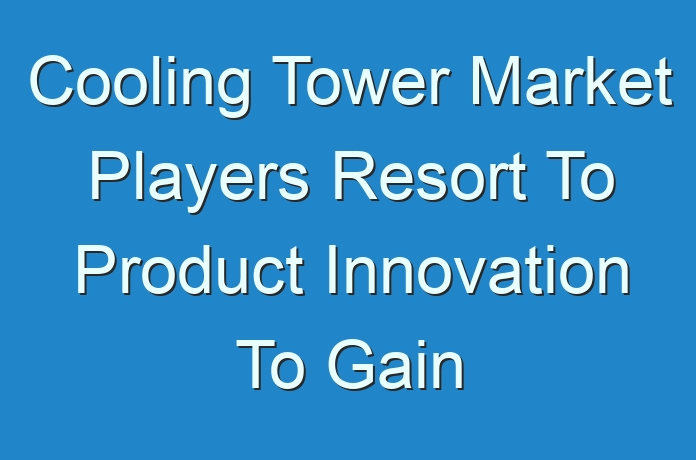
According to a new market report published by Transparency Market Research on the cooling tower market for the forecast period of 2019-2027, the global cooling tower market is expected to reach ~US$ 5 Bn by 2027, expanding at a CAGR of ~3% from 2019 to 2027. Europe held a prominent share of the global cooling tower market in 2018.
Field-erected cooling towers are large structures made of concrete, FRP (fiber reinforced plastic), wood, etc., meant to withstand weather changes. These towers are generally used in heavy industrial areas where they utilize large volumes of water to perform cooling processes. They are anticipated to hold the largest market share by 2027 under the construction segment. Factory-assembled cooling towers are also known as ‘package’ or ‘modular’ cooling towers, and are made in a factory. They are comparatively smaller in size, energy-efficient, take less space and time to build, and are cost-effective. These are used in small industrial plants.
The North America cooling tower market is anticipated to grow at significant rate during the forecast period. In North America, end-use industries such as the power sector extensively use field-erected, concrete-made cooling towers that can hold large capacities of water. Moreover, the induced draft type is a widely used cooling tower technology in North America. For instance, global cooling tower manufacturer SPX Corporation recommended replacing a 80 horsepower (HP) forced draft cooling tower with a 30 HP induced draft cooling tower, which increased the cooling tower capacity by 5%, and consumed only 38% of energy as compared to a forced draft cooling tower. The induced draft cooling tower segment holds the largest share of the cooling tower market in North America, and is expected to lead the market during the forecast period. Natural draft cooling towers are the second-most popular type installed in North America. Natural draft cooling towers consume less power than induced draft cooling towers.
Request for a sample:
https://www.transparencymarketresearch.com/sample/sample.php?flag=S&rep_id=2022
Europe is the largest cooling tower market, globally. New cooling tower installations and replacement demands are aiding in the growth of the market in Europe. The power sector in the region, especially gas-fired power plant installations, is fueling the demand for these towers. Evaporative technology is the most common technology used in cooling towers in Europe. In evaporative technology, there is direct contact of cooling tower water with the air. In October 2016, EUROVENT, an association of cooling tower manufacturers in Europe, released Eurovent 9/12, which is an industry standard for thermal performance efficiency for evaporative cooling towers and other cooling equipment. The evaporative cooling tower segment holds the maximum market share, while dry cooling is the second-most used technology. This method of heat transfer is expected to grow moderately during the forecast period. Hybrid cooling towers are witnessing increase in demand, as they reduce thermal plume and conserve freshwater use in plants.
Ask for brochure:
Some of the major players in the global cooling tower market include Baltimore Aircoil Company (BAC), ENEXIO Management GmbH, Hamon & Cie (International) SA, Babcock & Wilcox Enterprises, Inc., SPX Corporation, Bell Cooling Towers Pvt. Ltd, Brentwood Industries, Inc., Paharpur Cooling Towers Ltd, Star Cooling Towers, and Delta Cooling Towers, Inc.
TMR Latest News Publication:
https://www.prnewswire.com/news-releases/global-labels-market-to-ride-on-the-back-of-growing-popularity-of-linerless-labels-emergence-of-rfid-technology-to-emerge-as-a-game-changer-in-the-market—tmr-301325484.html






